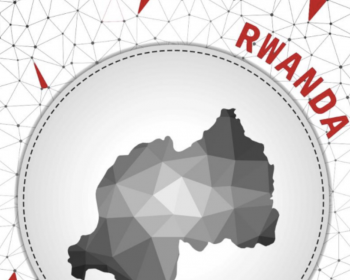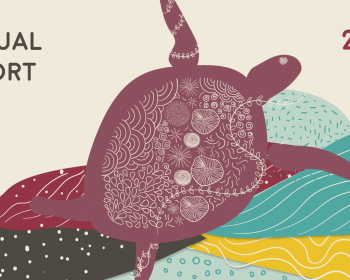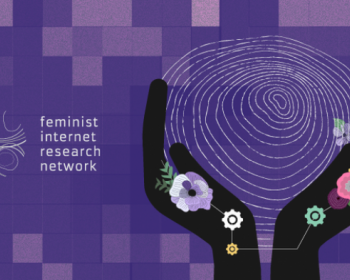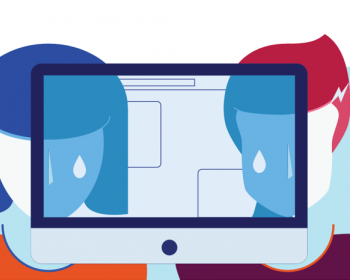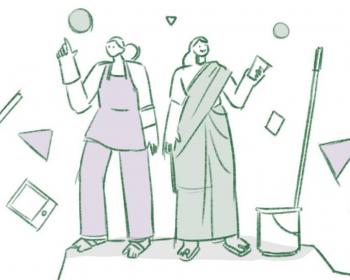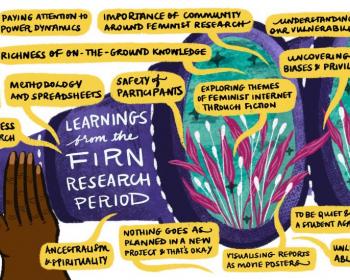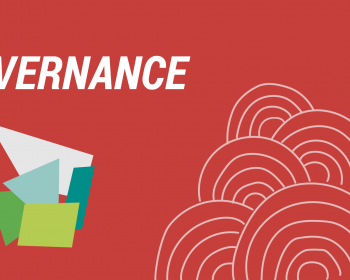International Development Research Centre (IDRC)
IDRC was one of our earliest supporters, providing funds needed to launch the APC Women’s Networking Support Programme (APC WNSP) activities around the world during the lead-up to the 1995 UN World Conference on Women. IDRC also provided support to some of the earliest work promoting connectivity through a network of store-and-forward notes in Africa, Asia, Latin America and Central and Eastern Europe. IDRC continued to support initiatives of the APC WNSP, as well as the development of our Mission-Driven Business Planning Toolkit. IDRC also provided start-up support to our internet rights work through the Global ICT Policy Monitor project, with a focus on activities in Latin America and Africa. In addition, APC’s Betinho Communications Prize to recognise socially meaningful uses of the internet was funded by IDRC for the first two years, along with partial support for the APC Africa Hafkin Prize and, in 1995, for the APC Council Meeting in Brazil.
Work supported:
-
Feminist Internet Research Network (2018-2022)
-
Local Access Networks: Can the unconnected connect themselves? (2017-2018)
-
Mapping Gender and the Information Society (2016-2017)
-
A Rights-Based Approach to Internet Policy and Governance for the Advancement of Economic, Social and Cultural Rights (2013-2016)
-
Building research and communications capacity for an open, fair and sustainable networked society: The APC Action Network (2010-2012)
-
Implementation of a Business Development Strategy for the Gender Evaluation Methodology (GEM business model) (2010-2011)
-
Capacity Building and Institutional Support Project (INSPRO I and II) (2005-2010)
-
Communication for Influence in Central, East and West Africa (CICEWA) (2008-2010)
-
D-Island – online spaces for ICT4D practitioners (2010) Towards Détente in Media Piracy (2008-2010)
-
Gender and ICT Evaluation Methodology (GEM II) (2006-2009)
-
Communication for Influence in Latin America (CILAC) (2008-2009)
-
GenARDIS project (2005-2009) Feminist Tech Exchange (FTX) (2008)
-
Institutional strengthening and assessment of KICTANet (2007)
-
Harambee (2006-2007) GEM workshop in Asia (2006)
-
GenARDIS project evaluation (2006)
-
Making EASSy Easy (2006)
-
Capacity Building for Community Wireless Connectivity in Africa (2004-2006)
-
Gender Research in Africa into ICTs for Empowerment (GRACE) (2005-2006)
-
Media and ICT policy meeting (2006) Meeting of all wireless partners (2006)
-
Wireless Going Forward (2006)
-
Wireless Training workshop at the World Summit on the Information Society (WSIS) (2005)
-
Global Gender and ICT Forum (2004)
-
Africa ICT Policy Monitor project (2004-2005) Africa Hafkin Prize (2003-2005)
-
Betinho Prize (2003 and 2005)
-
Gender and ICT Evaluation Methodology (GEM) (2003-2004)
-
LAC and Africa ICT Policy Monitor Projects (2003)
Link: https://www.idrc.ca/
Taking Latin America as a point of departure, this research seeks to contribute to the development of an anti-colonial feminist framework to question artificial intelligence systems that are being deployed by the public sector, particularly focused on social welfare programmes.
This report addresses the role of social media in the production and dissemination of hate speech and anti-rights discourse in Brazil. The researchers analysed the impact of this hostile climate on feminists, LGBTIQ people and their allies, as well as their individual and collective responses.
This study combined quantitative and qualitative research to explore what socioeconomic factors inhibit internet access for women in rural and urban settings in Rwanda. It was produced with the support of APC as part of the Feminist Internet Research Network (FIRN).
This publication tells a story of collective adaptation and resilience, closeness and collaboration, care and connections, of a growing community navigating change.
We are pleased to announce the launch of the Feminist Internet Research Network (FIRN) website. The site's goal is to gather in one place the results of FIRN research projects, which aim to provide evidence to drive change in internet policy and law, and a feminist approach to internet rights.
The aim of the project is to support state institutions and civil society organisations involved in overcoming gender-based violence on the internet, in identifying the right communication tone and methods to improve its effectiveness.
This report presents the findings of a two-year research project undertaken by the Centre for Internet and Society (CIS) to study the entry of digital platforms in domestic and care work in India. The project was supported by APC as part of the Feminist Internet Research Network.
In this report summary we share presentation briefs, quotes, insights and discussions from the Feminist Internet Research Network (FIRN) online convening, held from 15 to 23 June 2020.
From 2016 to 2019, we worked for internet-related and ICT policy processes to protect the publicness of the internet and to be accessible, democratic, transparent, accountable and inclusive. How far did we get? Check it out!
From 2016 to 2019, we worked for women’s rights and sexual rights activists to engage with internet and ICT policy and development as feminist issues. How far did we get? Check it out!

Association for Progressive Communications (APC) 2022
Unless otherwise stated, content on the APC website is licensed under Creative Commons Attribution 4.0 International (CC BY 4.0)





